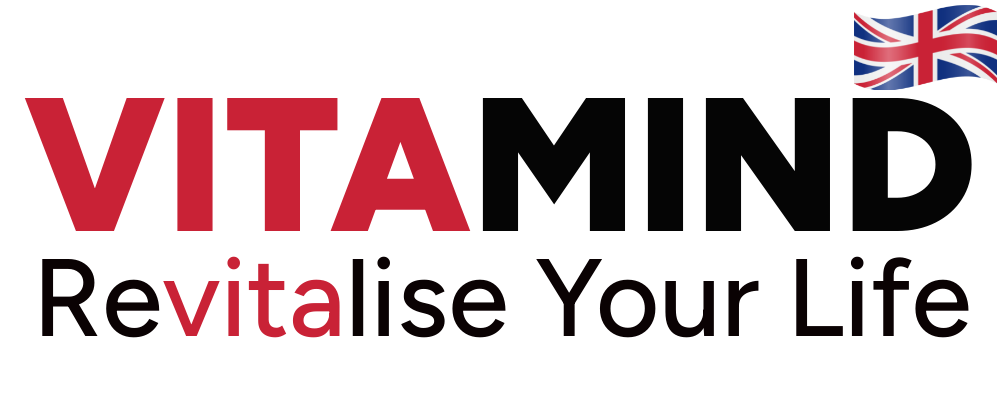Vitamin D3 and K2 are two essential nutrients that play a vital role in maintaining bone health and overall well-being. While vitamin D3 is primarily known for its ability to promote calcium absorption, vitamin K2 is crucial for ensuring that calcium is properly deposited in bones and not deposited in arteries or other soft tissues.
Both vitamin D3 and K2 are fat-soluble vitamins, meaning they are absorbed more effectively when taken with food containing fat. Ideally, both vitamins should be taken together to optimize their effectiveness in promoting bone health.
Let’s explore the importance of both vitamin D3 and K2, the recommended dosage for each vitamin, and the potential benefits of taking both vitamins together. We will also discuss some of the sources of vitamin D3 and K2 in the diet, as well as potential risks and side effects associated with supplementation.
What are Vitamin D3 and K2?
Vitamin D3 and K2 are essential vitamins that play distinct but complementary roles in the body.
Vitamin D3, also known as cholecalciferol, is crucial for calcium absorption in the intestines. It helps maintain healthy levels of calcium and phosphorus in the blood, which is vital for bone health and overall bodily functions.
Vitamin K2, specifically as menaquinone-4 (MK-4) and menaquinone-7 (MK-7), is responsible for activating proteins that regulate calcium distribution in the body. It ensures that calcium is directed to the bones and teeth while preventing its accumulation in soft tissues, such as blood vessels.
✅ Benefits
How Do Vitamin D3 and K2 Work Together?
When taken together, Vitamin D3 and K2 work synergistically to support overall health. Vitamin D3 aids in calcium absorption, while Vitamin K2 helps ensure that calcium is deposited in the bones and teeth rather than accumulating in arteries and soft tissues.
RELATED: Complete Guide to Perimenopause
What Are the Health Benefits of Taking Vitamin D3 and K2?
The health benefits of taking Vitamin D3 and K2 together include improved bone health. They promote the mineralization of bones, reducing the risk of osteoporosis and fractures. Additionally, this combination may have a positive impact on cardiovascular health by preventing the calcification of arteries, which can reduce the risk of heart disease.
Can Vitamin D3 and K2 Improve Bone Health?
In terms of bone health, Vitamin D3 and K2 work together to optimise calcium utilisation and improve bone density. This can be particularly beneficial for individuals at risk of osteoporosis or those with calcium absorption issues.
Can Vitamin D3 and K2 Improve Dental Health?
Some research suggests that vitamin D3 and K2 may play a role in preventing periodontal disease, a common condition that affects the gums and the supporting structures of the teeth. Vitamin D3 and K2 may help to promote healthy bone growth and reduce inflammation in the gums.
One study found that taking 1,000 IU of vitamin D3 and 45 micrograms of vitamin K2 per day for 12 weeks significantly reduced the risk of periodontal disease in adults with low vitamin D levels.
However, more research is needed to confirm these findings.
Vitamin D3 and K2 Supplements for Osteoporosis
Both Vitamin D3 and K2 play essential roles in bone health. Vitamin D3 helps with calcium absorption, and Vitamin K2 ensures calcium is directed to the bones rather than soft tissues.
While supplements can be beneficial in preventing osteoporosis, they should be part of a comprehensive approach that includes a balanced diet, weight-bearing exercises, and other lifestyle factors. Consult with a healthcare provider for personalized recommendations.
How Do Vitamins D3 and K2 Impact Cardiovascular Health?
Regarding cardiovascular health, Vitamin D3 and K2 help prevent calcium buildup in arterial walls, reducing the risk of arterial calcification and contributing to healthier blood vessels. This, in turn, can support overall cardiovascular well-being.
How Do Vitamin D3 and K2 Affect Blood Clotting?
Vitamin K2 is necessary for the activation of proteins involved in blood clotting. Therefore, taking too much vitamin K2 can increase the risk of blood clots. However, most people do not need to worry about this, as the recommended daily intake of vitamin K2 is relatively low.
RELATED: Female Wellness: Perimenopause and Menopause Formula
Can These Vitamins Help Reduce Inflammation?
Some research suggests that vitamin D3 and K2 may help reduce inflammation by regulating the immune system. However, more research is needed to confirm these findings.
Can Vitamins K2 and D3 Help with Diabetes Management?
Some research suggests that vitamin D3 and K2 may help to improve blood sugar control in people with type 2 diabetes. One study found that taking 4,000 IU of vitamin D3 per day for 12 weeks significantly improved blood sugar control in people with type 2 diabetes.
However, more research is needed to confirm these findings.
D3 and K2 Support for the Immune System
Vitamin D3 is known for its immune-modulating properties. It helps activate immune cells and may enhance the body’s defense against infections. Vitamin K2, although not primarily associated with the immune system, contributes to overall health, which indirectly supports immune function.
While these vitamins can support the immune system, they should not be relied upon as standalone solutions for immunity. Maintaining a well-balanced diet and a healthy lifestyle are essential for robust immune function. Always consult a healthcare professional for advice on supplementing for specific immune-related concerns.
How Long Does it Take to See Benefits from Taking Vitamins D3 and K2?
The time it takes to see benefits from taking vitamin D3 and K2 can vary depending on the individual and the specific health condition being addressed. However, some studies have shown that benefits may be seen within a few weeks or months.
For example, one study found that taking 1,000 IU of vitamin D3 and 45 micrograms of vitamin K2 per day for 12 weeks significantly improved bone mineral density in older adults with low vitamin D levels.
RELATED: Can Vitamin D Deficiency Cause Hair Loss
Can Vitamin D3 and K2 Help with Skin Health?
Some research suggests that vitamin D3 and K2 may play a role in skin health by promoting collagen production and reducing inflammation. However, more research is needed to confirm these findings.
✅ Sources and Intake
Natural Sources of Vitamin D3 and K2
Vitamin D3 can be naturally obtained from sunlight exposure, as the skin produces it when exposed to UVB rays. Dietary sources include fatty fish (like salmon and mackerel), egg yolks, and fortified foods like dairy and cereals.
Vitamin K2, on the other hand, is found in fermented foods such as natto (fermented soybeans), cheese, and in small amounts in meat and dairy products. It is also produced by gut bacteria.
Are There Vegan Sources of Vitamins K2 and D3?
Yes, there are vegan sources of vitamin D3 and K2. Some good sources of vitamin D3 include:
- Fortified plant milks
- Tofu
- Nuts and seeds
- Some mushrooms
Some good sources of vitamin K2 include:
- Natto
- Fermented soybean paste
- Fermented cabbage
- Cheese
Daily Recommended Intake of Vitamin D3 and K2
The recommended daily intake of Vitamin D3 varies based on factors like age, sex, and individual health conditions. In general, adults may require 600-800 IU (International Units) of Vitamin D3 per day.
Vitamin K2 intake is not as clearly defined, but around 90-180 mcg (micrograms) per day is considered a reasonable target for adults. However, specific requirements may vary, so it’s advisable to consult a healthcare provider for personalized recommendations.
Risks Associated with Vitamin D3 and K2 Supplements
While Vitamin D3 and K2 supplements can offer numerous health benefits, excessive intake can lead to adverse effects. Overconsumption of Vitamin D3 may result in hypercalcemia (elevated calcium levels), leading to kidney stones and other health issues.
Vitamin K2 supplements are generally safe when taken as recommended, but extremely high doses could potentially interfere with blood-thinning medications. It’s essential to follow dosage guidelines and consult a healthcare professional to avoid potential risks.
Is it Better to Take Vitamin D3 and K2 Together or Separately?
It is generally recommended to take vitamin D3 and K2 together, as they work together to promote bone health. However, there is no right or wrong answer, and some people may prefer to take them separately.
Is There a Difference Between Vitamin K2 MK-4 and MK-7 Forms?
Yes, there is a difference between vitamin K2 MK-4 and MK-7 forms. Vitamin K2 MK-4 is the form of vitamin K2 that is most readily absorbed by the body and is therefore the most effective form for bone health. Vitamin K2 MK-7 is a longer-lasting form of vitamin K2 that may have additional benefits, such as reducing the risk of cardiovascular disease.
RELATED: Probiotics and Mental Health: What You Need to Know
Are There any Interactions Between Vitamin D3 and K2 with Medications?
There are a few potential interactions between vitamin D3 and K2 with medications. For example, vitamin D3 can interact with certain medications used to treat high blood pressure, such as calcium channel blockers. It is important to talk to your doctor before taking vitamin D3 and K2 if you are taking any medications.
What Are the Symptoms of an Overdose of Vitamin D3 and K2?
Taking too much vitamin D3 can lead to hypercalcemia, a condition that causes high levels of calcium in the blood. Symptoms of hypercalcemia can include:
- Nausea and vomiting
- Constipation
- Fatigue
- Muscle weakness
- Confusion
- Increased thirst
- Increased urination
In severe cases, hypercalcemia can lead to kidney stones, coma, and even death.
Taking too much vitamin K2 is not as common as an overdose of vitamin D3, but it can also lead to problems. Symptoms of vitamin K2 overdose can include:
- Bleeding
- Bruising
- Nosebleeds
It is important to talk to your doctor before taking any supplements, including vitamin D3 and K2, to determine the appropriate dosage for you.
How Do Age and Gender Affect the Need for Vitamin D3 and K2?
The need for vitamin D3 and K2 increases with age, as the body’s ability to absorb and utilise these vitamins decreases. Additionally, women may need more vitamin D3 and K2 than men due to their higher risk of osteoporosis.
What’s the Best Time of Day to Take Vitamin D3 and K2?
There is no definitive answer to this question, as the best time of day to take vitamin D3 and K2 may vary depending on individual factors. However, some experts suggest that it is best to take these vitamins with a meal that contains fat, as fat helps to improve absorption.
Can Lifestyle Factors Affect the Absorption of Vitamin D3 and K2?
Yes, lifestyle factors can affect the absorption of vitamin D3 and K2. Some factors that can reduce absorption include:
- Not getting enough sun exposure
- Having dark skin
- Being overweight or obese
- Taking certain medications
Eating a healthy diet and getting regular exercise can help to improve the absorption of vitamin D3 and K2.
RELATED: Natural Sleep Aids: Best UK Sleeping Supplements
Final Thoughts
As you can see, vitamin D3 and K2 are essential vitamins that collaborate to promote calcium absorption, optimal bone health, and cardiovascular well-being. Their synergistic effects make them valuable supplements for maintaining overall health and preventing certain health conditions.
However, it’s important to consult a healthcare professional before starting any new supplement regimen to determine the right dosage and suitability for individual needs.






